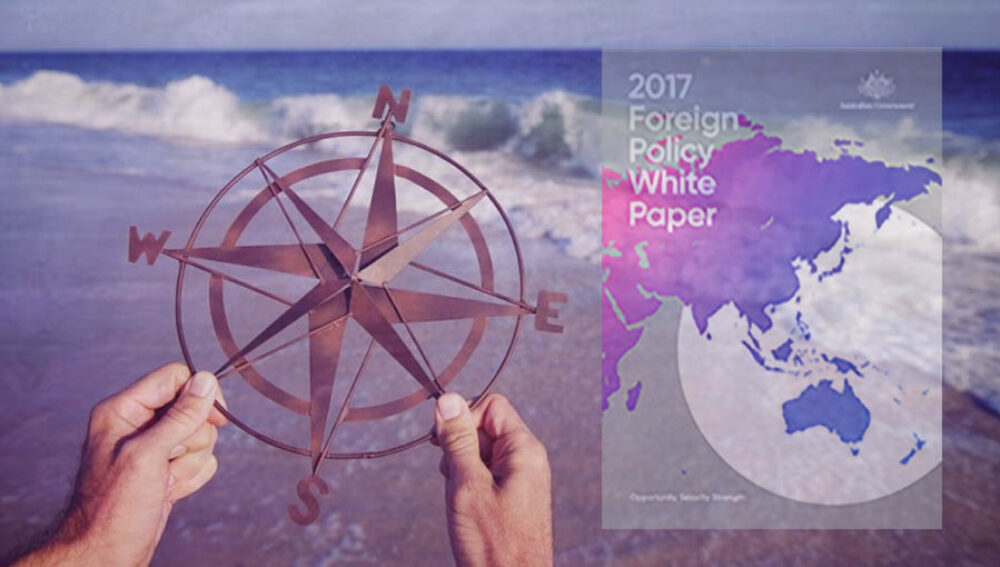HUI FENG |
Why Australia’s China policy in the White Paper is misleading
The recently released Australian Foreign Policy White Paper (WP) aimed to “chart a clear course for Australia” in the next ten years. However, its policy toward China is not only misleading but also counterproductive.
Although the WP recognises the importance of China’s economy for Australia, it implicitly portrays China as a potential threat to the rules-based international order mainly because of China’s challenge to US dominance. The WP does not clearly define what Australia’s national interests are. Instead, it suggests that “supporting US global leadership, therefore, serves Australia’s national interests” (80). It is clear that Australia has planned to side with the United States in coping with China’s challenges in the next decade. The underlying reason is simple: Australia does not want to live in a new international order led by China since China is not a democracy like Australia.
However, this ideology-driven policy commits two fallacies of unwarranted assumptions. On the one hand, it optimistically, but incorrectly, assumes that the United States will be able to sustain its dominant position in the world. However, the rise and fall of great powers is inevitable in human history. No country has been on the top forever in the international system. Neither will the United States. On the other hand, Australia idealistically assumes that other states, including the United States, Japan, India, South Korea, and Indonesia, will jointly balance against the rise of China. Indeed, it is not the first time Australia has advocated the concept of the “Indo-Pacific” and promoted a “quadrilateral coalition” or minilateralism with other democracies to balance against China. It was not successful in the past. It may not be so in the future.
The reason is simple. In international relations, states balance against the most threatening state, not the most powerful state. China might become the most powerful state in the region. However, as long as it does not pose a common threat to the region, it will not be balanced against by other states. Moreover, China is the largest trading partner for most countries, including Australia, in the Asia Pacific. No country wants to antagonize its most important business partner. If Australia insists on this “balancing” strategy against China in the future, it will be damaging and risky for Australia’s national interests because China might not want to do business with a country who perceives it as an enemy.
It is time for Australian policy makers to rethink Australia’s national interests, which should not be influenced by other states, including the United States and China. Values and ideologies are indeed important for a country’s identity and foreign policy. However, foreign policy should be based on national interests instead of wishful thinking. Diversity is important for democracy. It is equally significant for international politics. The key to the success of Australia’s foreign policy is not to take sides between great powers because Australia is not able to tilt the balance of power among great powers. Instead, Australia should play an even more positive role in mediating and facilitating the bargaining and negotiations between great powers for achieving a peaceful transition in the international system.
Finding the balance between security and free trade
The White Paper represents a high class of balance on the part of Canberra in terms of Australia’s economic and security interests. On the trade and economic front, the message from the White Paper is clear. For Australia, the future lies in the Indo-Pacific region that hosts four of the world’s five biggest economies (China, Japan, India and Indonesia) and a middle class of almost 3.5 billion people, while the advanced economies are largely mired in constrained fiscal positions and tepid growth. On the other hand, the international community, including Australia, need a rules-based system more than ever, which is facing a variety of challenges.
Given the protectionist and isolationist tendency of the Trump Administration, the White Paper unequivocally states that ‘protectionism represents a serious risk to Australia’s interests’, and that ‘The best way to protect and improve Australia’s competitive position will be to push for more bilateral and regional free trade agreements’.
Under this strategy, Australia is expected to walk with Japan in facilitating the establishment of a regional trade deal without the United States, and to enhance its exchanges with Indo-Pacific countries on trade and economic cooperation.








